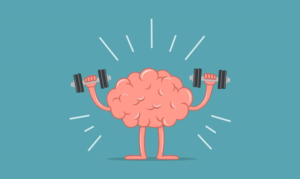Mental health disorders are among the leading causes of the global health-related burden, with substantial individual and societal costs. In 2019, one in eight people worldwide were affected by a mental health disorder, and almost one in two will experience a mental health disorder in their lifetime. Depression is the leading cause of mental health related disease burden, while anxiety is the most prevalent mental health disorder. Generally, individuals experiencing mental health conditions will also experience some elements of poor physical health, and vice versa. Statistics show that people are almost four times more likely to suffer from cardiovascular disease (CVD) and significantly more likely to die from CVD as opposed to those without mental illness, and are 2-3 times likely to develop type 2 diabetes.
Currently, the role of lifestyle management approaches, such as exercise, sleep hygiene and diet vary between clinical practice guidelines in different countries. In Australia, lifestyle management is recommended as the first line treatment approach, but often pharmacotherapy (medication) is often provided first. There have been hundreds of research trials examining the effects of physical activity (PA) on depression, anxiety and psychological distress, many of which suggest that PA may have similar effects to medication but without the side effects. Despite the evidence for the benefits of PA, it has not been widely adopted therapeutically.
A recent overview of systematic reviews completed by Singh et al (2023), looked at 97 reviews to synthesis the evidence on the effects of physical activity on symptoms of depression, anxiety, and psychological distress in adult populations, compared to usual care. This review found that physical activity is highly beneficial for improving symptoms of depression, anxiety, and distress across a wide range of adult populations, including the general population, people with diagnosed mental health disorders and people with chronic disease (compared to usual care). Furthermore, higher intensity exercise showed a greater improvement in symptoms. With exercise making a big difference in mood and promoting a positive mental health, whilst also helping to reduce the symptoms of mental illness, there is a greater need for exercise to be a fundamental part of mental health and should be a mainstay approach.
Why is exercise so important for our mental health?
Some of the benefits of exercise are:
- Feeling relaxed and reduced muscular tension post exercise. When we exercise, we increase our core temperature (become hot and sweaty) and this increase in temperature effects specific regions of the brain, including our brainstem which can lead to an overall feeling of relaxation and reduce any tension our muscles may be holding.
- Increased release of endorphins. Endorphins are associated with positive mood and overall sense of well-being. Several studies have shown that endorphin levels increase following both single and multiple exercise sessions. As levels of serotonin, stress hormones and endorphins change when you exercise, it helps improve your sense of control, coping ability and self- esteem. People who exercise regularly often report how good achieving a goal makes them feel.
- Exercising also helps with sleep quality, further contributing to long term improvements in mood. Along with this, exercise helps distract us from negative thoughts and can be a great outlet for any frustrations you may have.
What type of exercise is effective in treating depression and anxiety?
Aerobic exercise and weightlifting have been shown to be affecting in reducing the symptoms of both anxiety of depression. It is recommending doing the following.
- Moderate intensity aerobic exercise such as walking, running, or cycling: 30-60 minutes per session at least 3 days per week. Even going on hikes or walks in nature is a great way to improve mental health as it helps you to correctly assess nervous system responses, such as the heart beating faster due to exercise, not to stress. Walking in natural environments also assists with reducing levels of anxiety.
- High intensity resistance training at least 3 days each week for roughly 60 minutes.
- Breathing: Simply focusing on taking a huge breath in, holding it for 2-3 seconds and breathing all the way out in a relaxed way stimulates the vagus nerve, resulting in a relaxation response. Focusing on our breathing stimulates our parasympathetic system, which is responsible for relaxing and resting.




